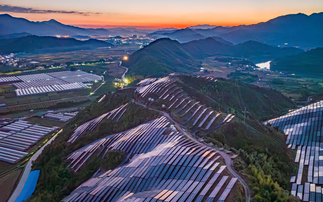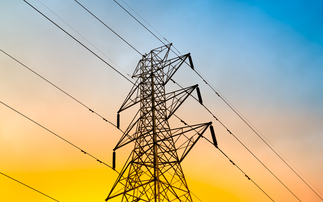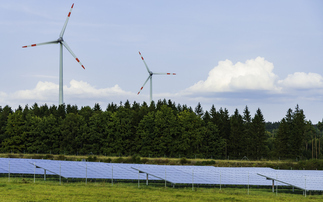As new partnership with BusinessGreen is confirmed, energy giant unveils sweeping new plan to support the SDGs, accelerate clean tech deployment, and develop a net zero emission strategy
Centrica has today launched a sweeping new sustainability vision, unveiling a raft of green targets designed to support both the UN Sustainable Development Goals (SDGs) and the Paris Agreement.
Published under the banner 'Responsible Business Ambitions 2030', the plan features a host of commitments to enhance customer, employee, and community engagement, as well as accelerate the deployment of clean technologies and slash carbon emissions across both its own operations and customers' properties.
Specifically, the plan features a number of climate goals through to 2030 that the company says are aligned with the Paris Agreement, including a target to deliver 7GW of flexible, distributed, and low carbon technologies globally - equivalent to over 10 per cent of current UK peak demand.
It also pledges to help customers reduce their emissions by 25 per cent, directly contributing three per cent via Centrica products and services, while supporting indirect emissions savings through "insight and influencing policy".
In addition, the British Gas parent company has set a new goal to cut its internal emissions 35 per cent through to 2025. It also said it would develop a path to net zero by 2050 and would demonstrate that the firm is on track with Paris by 2030.
"As a leading energy and services business, we want to continue to play a meaningful role in tackling climate change and supporting national and international carbon reduction targets," said James Rushen, group head of environment at Centrica. "We've already come a long way and now produce over 80 per cent less carbon than we did a decade ago through shifting our focus away from being a traditional utility operating centralised generation and production assets to become a customer-facing energy and services company.
"We have now committed to reduce Centrica's internal emissions by a further 35 per cent in the 10 years to 2025 and, by 2030, demonstrate that we remain on track with Paris and develop a path to net zero by 2050."
The company said its Centrica Business Solutions division will play a key role in delivering on the climate goals, as it continues to expand its presence in the fast-expanding market for clean technologies, such as battery storage, combined heat and power (CHP), solar power, demand-response services, and energy management systems.
Meanwhile, the company's energy marketing and trading business is expected to step up work to provide a route-to-market for renewables by balancing and trading power production as part of multiple wind farm agreements across Europe.
Rushen hinted further developments and investments would be made in the coming years as the company works to deliver on its new emissions goals. "We are now entering a new phase where we must innovate to facilitate and harness our customers' ability to change, finding ways to help our customers use energy more sustainably, decarbonise the energy system and reduce our own emissions," he said.
The new strategy makes Centrica the latest in a series of leading UK energy firms to publicly underscore its commitment to deep decarbonisation and step up its commitment to delivering a portfolio of clean technologies and energy services.
In support of the new ambitions, the company also today confirmed it is to partner with BusinessGreen as headline sponsor of this autumn's BusinessGreen Leaders' Summit and June's upcoming Towards Net Zero Energy Leaders Briefing.
"We're delighted to be working with BusinessGreen on this important partnership, which is a reflection of our commitment to drive forward sustainability across our business and our customers," said Emily Highmore-Talbot, head of communications for Centrica Business & Innovation. "We're looking forward to sharing learnings and building relationships with BusinessGreen's fast growing and influential green business audience as we continue to make the transition towards a cleaner future that we can all be proud of."
Beyond the headline climate goals, the new Responsible Business Ambitions plan also features a host of wider targets in support of the UN's SDGs, including pledges to double the number of female recruits into science, technology, engineering, and maths (STEM) roles up to 40 per cent; support 2,500 young people not in education or employment with skills development opportunities; encourage employees to deliver over 100,000 volunteering days; and help one million carers stay in or return to work via active promotion of carer-positive policies.
In addition, the company has set a target to utilise new energy technologies to delivering £5bn of value for communities, including £300m in energy efficiency savings for public and essential services.
Group chief executive Iain Conn hailed the Responsible Business Ambitions as a means of bringing "the company's purpose to life".
"We are, of course, here to satisfy the changing needs of our customers and to deliver long-term shareholder value," he said in a statement. "Together our Ambitions give meaning to the goal of 'helping you run your world in ever more sustainable ways'. We've been active in all of these areas for many years, and we wanted to bring them all together and set specific targets out to 2030 that will accelerate the positive impact we can have in society."
He acknowledged that the targets "are not going to be easy" to meet, but insisted it was "the right thing for us to set challenging goals and they will help us deliver better long-term sustainable value for all our stakeholders".
The move comes just a week after National Grid Electricity System Operator (ESO) announced it is on track to be able to fully operate Great Britain's electricity system with zero carbon emissions by 2025.
"In 2018, ESO managed a number of records on the electricity system - including wind generation in Great Britain exceeding 15GW for the first time and no coal on the system for 72 consecutive hours," said Fintan Slye, director of ESO. "By 2025, ESO will have transformed the operation of Great Britain's electricity system and put in place the innovative systems, products and services to ensure that the network is ready to handle 100% zero carbon."










